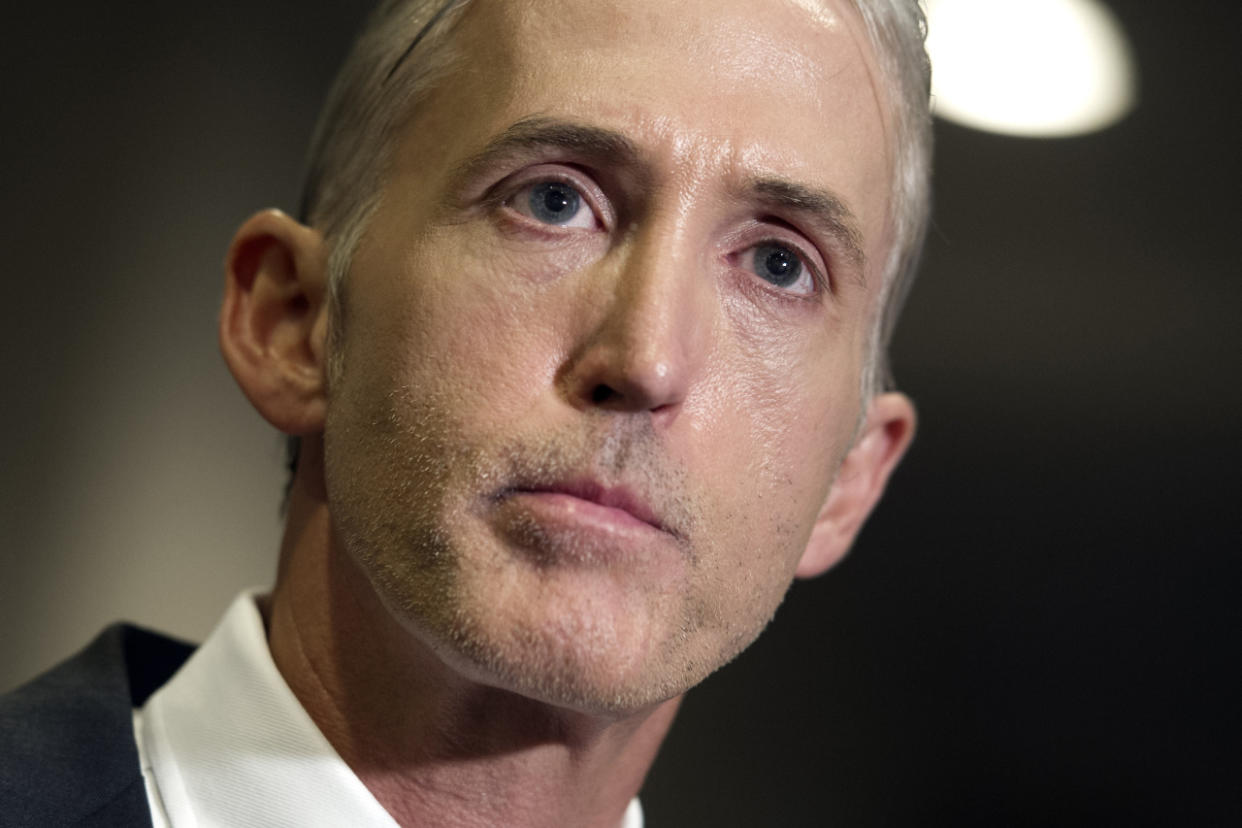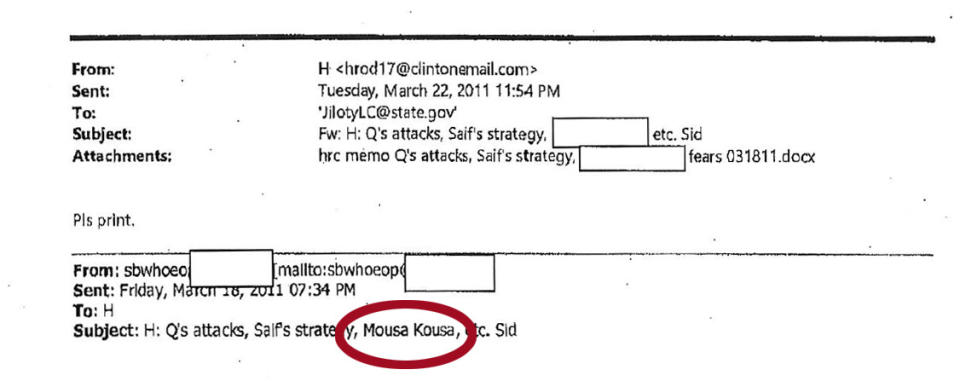Benghazi panel outs CIA source, then tries to cover its tracks

House Benghazi Committee Chairman Trey Gowdy, R-S.C., speaks to reporters on Capitol Hill in September. (Photo: Cliff Owen/AP)
The Republican-led House Select Committee on Benghazi hastily deleted the name of a high-level Libyan defector from one of its public releases on Monday, shortly after Yahoo News reported the panel had inadvertently revealed the defector’s name in an effort to embarrass Hillary Clinton.
The disclosure, followed by the quick wiping out of the name of ex-Libyan foreign minister Moussa Koussa (who had defected and become a source for the CIA on Libya), once again put the panel on the defensive on the eve of Thursday’s slated testimony from Clinton.
The incident was especially awkward for GOP chairman Rep. Trey Gowdy because just two weeks ago he had sought to make an issue over Clinton’s handling of an email that contained Koussa’s name.
At the time, Gowdy said, an email sent to Clinton on March 18, 2011, by her longtime friend and adviser Sidney Blumenthal contained the “name of a human source” for the CIA and was therefore “some of the most protected information in our intelligence community.”
“Armed with that information, Secretary Clinton forwarded the email to a colleague — debunking her claim that she never sent any classified information from her private email address,” wrote Gowdy in an Oct. 7 letter to Rep. Elijah Cummings of Maryland, the panel’s ranking Democrat, which he released publicly.
But over the weekend, the CIA undercut Gowdy’s assertion by informing the committee it did not seek any redactions in that or 126 other Blumenthal emails sent to Clinton, a sign that the panel did not view the information as classified.
Gowdy quickly pushed back on Sunday, countering that the Blumenthal email still contained “sensitive” information that should have been protected. He then publicly released the full text of the Blumenthal email with the name of the CIA source redacted.
But, as Yahoo News pointed out in a story published this morning, Gowdy’s release included Blumenthal’s subject line — which had Koussa’s name in it. Shortly after the story appeared, the committee then redacted Koussa’s name from the subject line. (You can read the original Gowdy release here and see the current version, with the Koussa redaction, here.)

A portion of the email originally released by the House Select Committee on Benghazi.
Today, Jamal Ware, a spokesman for committee Republicans, blamed the State Department for the apparent screwup. He said the department had “failed to redact” Koussa’s name from the subject line of the 2011 email, even though it was redacted elsewhere, before forwarding it to the committee.
State Department spokesman Mark Toner today acknowledged the mistake, calling it “human error” in the course of its review of Clinton’s emails. (The State Department’s position to the committee was that Koussa’s name should be redacted on privacy grounds, not that it is classified.)
But Ware did not address why the panel had not fully vetted the email for its contents before publicly releasing it.
Koussa was for years a top official in ex-Libyan dictator Moammar Gadhafi’s government, serving as intelligence chief before becoming foreign minister. He was widely suspected for years of having been a mastermind behind the bombing of Pan Am Flight 103 over Lockerbie, Scotland.
But his later relationship with the CIA — even prior to his defection to the United Kingdom at the end of March 2011 — was hardly a secret. Former CIA Director George Tenet revealed how Koussa had provided agency officials with vital information about Gadhafi’s chemical and nuclear weapons programs as well as details that helped the agency unravel A.Q. Khan’s nuclear smuggling network.
And by March 2011, as the Libyan revolt against Gadhafi gained momentum, aided by U.S. and European air power, Koussa was widely reported to have been a “back channel” for Western diplomats seeking information about what was going on inside Libya.


